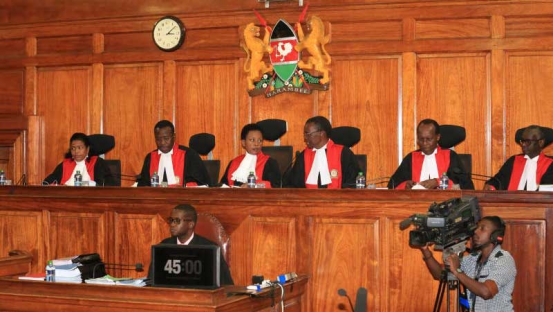×
The Standard e-Paper
Smart Minds Choose Us

The Supreme Court is today expected to deliver its ruling on two presidential election petitions challenging the October 26 re-election of President Uhuru Kenyatta.
All the eyes will be on Supreme Court judges led by Chief Justice David Maraga, who may uphold Uhuru re-election to pave way for his swearing in for the second term in office, or nullify his win and send the country back to another election.